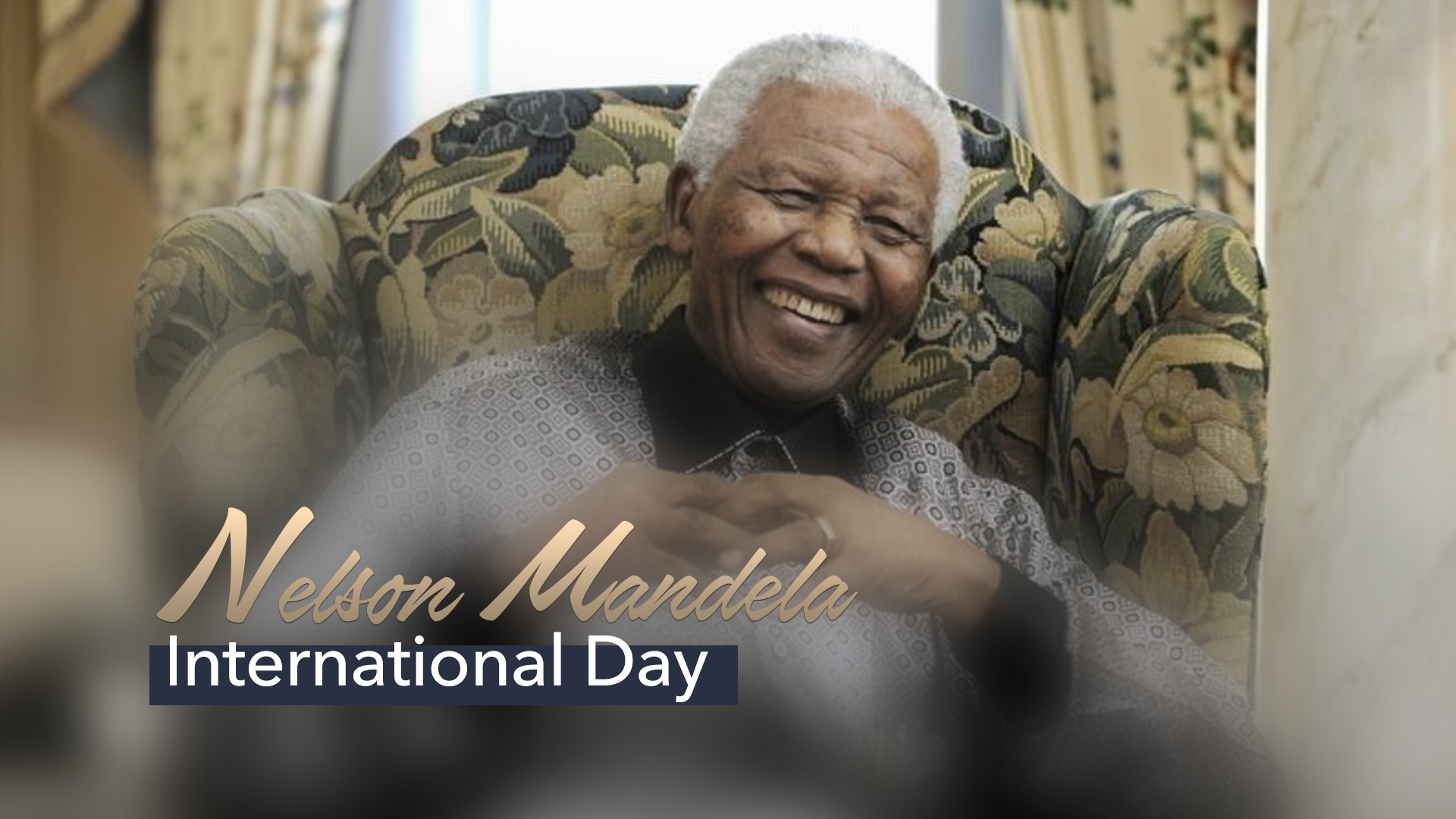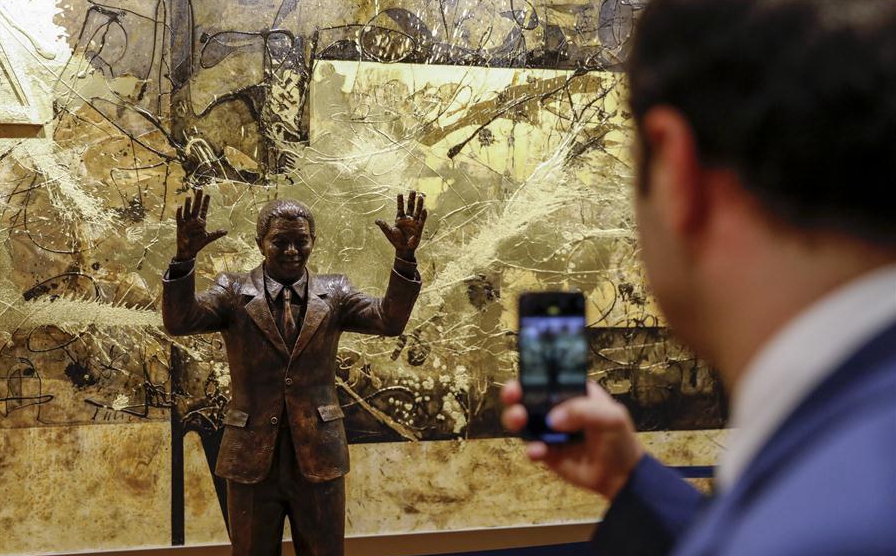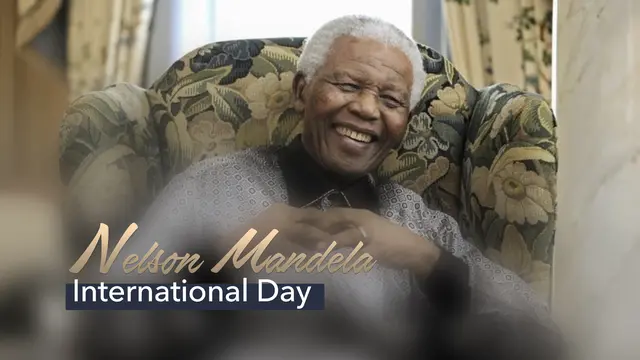
As long as poverty, injustice and gross inequality persist in our world, none of us can truly rest.
- Nelson Mandela
July 18, the day of Nelson Mandela's birth, is an opportunity to remember and learn from the former South African president's fight against apartheid which, in UN Secretary-General Antonio Guterres' words, marked "a landmark in human rights and freedom."
Born in 1918, Mandela was imprisoned for 27 years for his role in a sometimes violent fight against white-minority rule and segregation in South Africa. Ultimately he became the country's first Black president, working to dismantle institutionalized racism and create an equal future.
In honor of his pursuit of peace and freedom, Nelson Mandela International Day, or Mandela Day, is celebrated on July 18 annually.
Black Lives Matter
Over a century on from Mandela's birth, a worldwide campaign against racial injustice has found a new voice.
The Black Lives Matter movement has gone global following the death of George Floyd in the United States, with millions of people saying loud and clear that racism must be tackled in all its forms.
Shocking new body camera footage showing Floyd, a 46-year old African American who died after white Minneapolis police officer Derek Chauvin knelt on his neck for almost nine minutes, pleading for his life, has emerged in recent days.
Two separate autopsies released in June found Floyd's death to be a homicide, and his family is now suing the city of Minneapolis and the four officers charged in his death.
Kenyans who say their relatives were killed by the police protest in front of Parliament in June. /AFP
"More than 1,000 Black people die at the hands of police in the U.S. every year," the Nelson Mandela Foundation said in a statement condemning police brutality, adding "mass incarceration, predictive policing, targeted surveillance and a host of other tools render Black lives more vulnerable than all others."
"When communities are confronted by both resilient structural violence and attacks on their bodies, violent responses will occur... The use of violence can be rational and carefully targeted."
Hailing recent demonstrations, the former South African leader's grandson Mandla Mandela told Sky News that Nelson Mandela "would have admired" the Black Lives Matter protests across the world as people realize "they can no longer be silent."
Protests in a pandemic
While standing with Black Lives Matter protesters, London Mayor Sadiq Khan has voiced concerns about balancing the right to protest with the ongoing threat of the COVID-19 pandemic.
Protests over recent weeks have shown the difficulties in maintaining social distancing when large crowds gather. Though the risk of spreading the virus outdoors are thought to be considerably lower than indoors, there is still a very real danger.
"There have been confirmed new cases amongst protesters around the world – from the U.S. to Australia – and I fear we will see the same here," Khan warned last week, urging people to find a safe way to make their voices heard.

A man takes a photo of a statue of Nelson Mandela at the United Nations headquarters in New York, U.S. /Xinhua
Meanwhile, the mayor said monuments in London, including the Cenotaph in Whitehall as well as statues of Winston Churchill and Mandela, had been covered and protected.
'Equality, dignity and solidarity'
Noting that COVID-19 is exposing deep inequalities, the UN's Guterres called on world leaders to recognize the vital importance of unity and solidarity in his video message marking Nelson Mandela International Day.
"Each year, on Mandela's birthday, we pay tribute to an extraordinary global advocate for equality, dignity and solidarity," Guterres said. "Madiba was a moral giant of the 20th century, whose timeless legacy continues to guide us today."
The theme of Nelson Mandela International Day is "Take action, inspire change," which the UN head said highlights the importance of working together, from governments to citizens, to build a peaceful, sustainable and equitable world.
Guterres called for a better future of dignity, opportunity and prosperity for all people on a healthy planet.
(Cover picture by Li Yueyun)
 简体中文
简体中文





